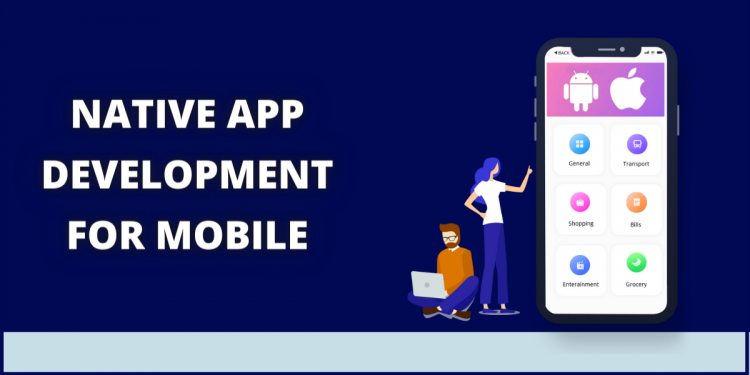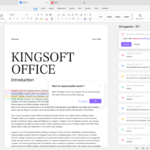Why Are Companies Going For Native App Development For Mobile?
With technological advancement, people seek the solace of compact, small screens for various application-based purposes. This has resulted in a high demand for a quality user experience (UX). The market has risen so much that tech giants like Apple, Microsoft, and Google have established guidelines. User experience comprises the looks and feels of the application, which sets the first impression on customers’ minds.
Using web-based applications to exercise this domain has proved a great challenge for the mobile app development company. Customization and security are highly susceptible to the operating system and platform used by the application. To solve this dilemma, mobile app development services have sought refuge in native app development. Let’s dive in and uncover some of these points.
What Does Native App Development Mean?
Native apps are written in programming languages specific to a given operating system. Some common examples include Java for Android and Objective-C for iOS.
The applications for the given applications are designed to suit and utilize the platform-specific features they are made for. They also provide benefits over the other alternatives, such as web app development and hybrid app development. Some of these features include security and better utilization of features of the hardware installed, which its competitors do not provide.
Some Of The Advantages Of Using Native App Development
Security Provided
Hybrid app development platforms provide the benefits of both web and native app development, but they have certain security loopholes that make the application vulnerable. These applications are based on system browser security only.
Mobile app development services using native mobile app development can form multiple layers of protection, safeguarding the operating system and making it hard to manipulate. Unlike hybrid app development, they do not utilize third-party frameworks using the APIs and SDK.
Accessibility To The Developers
Many experienced programmers have been using Native, which has developed over time. Many of them know the various crux of the operating system very well. Therefore, it is relatively easy for them to understand and work over the problems posed by the server, some of which include implementing amination or views.
Performance Provided
The mobile apps are designed and optimized for a given platform. This provides an overall better UI/ UX experience on the user end. Here, the software takes control over the mobile’s operating system and better processing speed. The application gets stored in the device. This provides a better opportunity to work on the UI/ UX experience. It is also helpful as the UI/UX is unified within a device.
Stability Of The Application
iOS and Android are the flagship products of Apple and Google, respectively, and they have been actively engaged in improving the quality of these platforms over the years. This ensures their credibility and makes these platforms relatively manageable and easy to develop. Other frameworks have their respective questions when it comes down to credibility.
In hybrid app development, mobile app development services must support the system while reupdating or making any changes to the given system. The system here features biometric APIs that can be implemented straight away. Also, it provides ground for regular updates for the given application, engaging the users and keeping the team on their toes.
Lesser Bugs
It is more difficult to maintain two individual apps in a single codebase than two separate apps with two different codebases. Native app development provides autonomy over using third-party platforms like Cordova and lesser reliance on bugs.
Hybrid applications are susceptible to hindering the application building process and hence annoying the user—native app Development user Software Development Kits (SDK) to do away with this problem. Therefore, applications use new platform features for updating.
To Conclude
Thus, the initial capital required to build an application using native app development may be high, but yes, it saves additional expenditures in the long run. It provides several features that meet the current needs of the time and eliminates several loopholes. For a developer looking for long-term hold and stability in this given field, Native app development is their best bet.
I hope you find this blog informative and have something to take away.

















